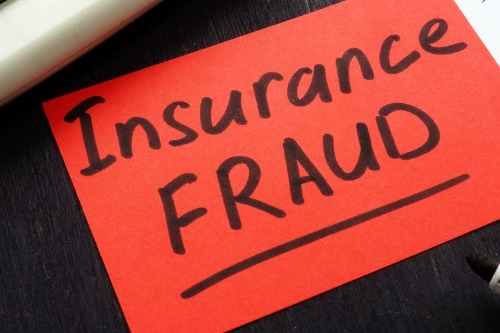Cost of living drives rise in fraud

Earlier this year a report from The Sunday Times revealed a doubling of ‘crash for cash’ incidents in the first half of 2023
Motor insurance fraud topped the table as the most common type of opportunistic fraud referred to the Insurance Fraud Enforcement Department (IFED) in the year to April 2023 – 51% of the cases the unit received.
The motor insurance industry has struggled with ‘crash for cash’ scams – fraudulent insurance claims for staged vehicle collisions – for many years. Most commonly these ‘accidents’ involve a planned car crash from behind with a subsequent physical injury claim, but can include cyclists, motorcyclists, and mopeds.
According to an Insurance Fraud Bureau (IFB) analysis in 2022, a UK insurance claim is linked to the crash for cash scam every four minutes, while the Association of British Insurers (ABI) has named motor insurance as the largest contributor to fraud cases, representing 59% of total insurance claims fraud.
However, more recent research has revealed a further 200% increase in crash-for-cash footage being sent to motor insurance companies.
Cost of living crisis is a financial incentive for fraudulent activity
Dash cam manufacturer Nextbase describes a doubling in cash-for-crash videos fed through its app directly to insurers in the first six months of the 2023, compared with the same period in 2022, which they partly attribute to the continuing cost of living crisis.
In a survey conducted by YouGov on behalf of the Motor Insurance Bureau (MIB), 9% of the population responded that they were likely to consider providing false or misleading information on an insurance claim to make money (e.g., claiming for compensation for damage or injury after a motor accident) if they were struggling financially.
The survey results also revealed that 8% believed it to be acceptable to lie on insurance claim to make money – and that 74% of respondents had heard of crash for cash motor insurance scams, which topped the results as the most commonly known method of committing insurance fraud.
The City of London Police’s IFED has echoed these findings, noting that the cost-of-living crisis is pushing a higher number of usually law-abiding drivers to consider insurance fraud as a means to ease financial pressures – a shift from what was once a scam carried out by criminal gangs.
Scam variations
The Clip for Cash scam is a more recent twist on crash for cash insurance fraud, and can involve pedestrians, cyclists and moped drivers. While it has been reported in the capital for several years, the frequency of clip for crash fraud is increasing in other parts the UK.
Carried out mostly by moped drivers, a scammer drives directly into an unsuspecting vehicle from a side road or parking space which is often partially obscured from view. This is followed by dramatized injuries and photographs – and in some scenarios, a planted ‘witness’.
The Insurance Fraud Bureau (IFB) and IFED have raised the issue with insurers to ascertain the severity of the scam, concluding that around 2,200 drivers in London alone have been victim of the scam in the past two years. It’s likely that every motor insurer in the UK has been targeted, with the fraudulent claims totalling £27million in value. At any one time, QBE may have around 250 claims that we believe are caught up in this type of activity.
Advice for drivers
The crash for cash tactic is a nationwide scam, not limited to big towns or cities. All UK drivers should be aware of car or moped driver behaviours that could be linked to fraudulent activity and/or organised crime.
Drivers can protect themselves by trying to avoid, quickly spotting, and reacting appropriately to potential scams. Actions can include:
Being aware of crash for cash tactics and potential warning signs – for example, moped drivers remaining stationary with the engine running in a place obscured from the road, such as behind a tree or van, or lingering on a side roadRegularly checking online to see if any new locations have been targeted by gangs so they can remain alert to heightened risk in these areasUsing a dashcam to record any suspicious behaviour, accidents and/or the events leading up to a collisionReporting unusual behaviours (including unfazed drivers, those who appear to exaggerate injuries, and anyone producing pre-prepared insurance information and taking lots of photographs) to the police and your insurance company[For employers] providing scenario-based training on crash for cash scams to prepare employee drivers to avoid becoming a victim or minimise the impact if they are targetedReporting any suspected crash for cash scam evidence to the IFB’s confidential Cheatline service, by calling 0800 422 0421 or completing an online form here
Authored by QBE





